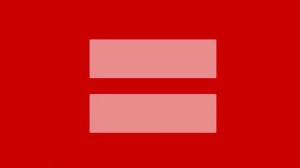
By Brad Crofford, Editor-in-chief
If you’re like me, your Facebook friends list last week turned red and pink as individuals showed their support for marriage equality.
This social media activism was prompted by the Supreme Court’s consideration of cases involving the Defense of Marriage Act and Proposition 8. Throughout the week, there were debates between those in favor of and those opposed to marriage equality.
Those in favor of marriage equality often emphasized that even if the Bible does not approve of homosexuality, it is not the ruling document for the United States (that would be the Constitution). Thus, religious arguments are irrelevant, they argue.
Proponents also suggested that when future generations look back on this, they will ask why this was such a big deal, like many do now with interracial marriage. “Do you really want to be on the wrong side of history?” they ask, hinting that marriage equality is inevitable.
I saw some opponents use deflection as a response. “What about the millions of children who have died as the result of abortions?” they ask. What about “life equality”? They seem to suggest that the proponents of marriage equality have no moral high ground given the issue of abortion.
Let me show my hand: of these three arguments, I find the distinction between religion and government to be the most persuasive.
The issue of being on the wrong side of history is unimportant to me; I do not believe we should govern in the present based on assumptions and conjecture about how some future generation may look back at us. I think this method leads to alarmism.
To see why, let’s consider the environmental question of whether we should drill more oil. Some could argue that drilling oil is currently a relatively cheap, efficient type of energy and that future generations would consider us fools for moving away from it earlier than necessary.
Others, however, could argue that oil breeds dependence on foreign countries and damages the environment, which would earn us the ire of future generations. Either way, there seems to be a lot of conjecture about opinions in the future.
The deflection of marriage equality based on pro-life grounds is frustrating. If we continually say we will not agree to solve Problem X until you fix Problem Y, we risk a self-perpetuating cycle of nothing getting accomplished. We must be willing to tackle problems on their own merits and not resort to demonizing the other side. The response of “life equality” is irrelevant and prevents actual cooperation and problem solving.
I believe the government should stop recognizing marriage. When we use the word marriage, we speak of at least two things. There is the religious aspect of it, reflected perhaps in a ceremony at a church, a unity candle, prayer, etc.
There is, however, also a legal component to it, evidenced by a marriage certificate and the ability of people to get married outside of religious ceremonies.
If the government ceases to recognize marriage and instead recognizes civil unions, we can disentangle these two aspects. Marriage could be outside the government, allowing religious institutions to determine what they believe constitutes a marriage, whether this is exclusively heterosexual or also homosexual.
Civil unions would be up to the government and would determine legal benefits. I believe it is unjust for government to deprive same-sex couples of their civil rights, but I also am opposed to any excessive government intrusion in religious institutions.
Separating the concepts of civil unions and marriages is the simplest, fairest compromise I can think of at this point (though I recognize my opinion could change in the future).
What do you think?
Submit a letter to the editor at echo.@mail.snu.edu
Disclaimer: This article is intended to address this issue from solely a political perspective without taking a stance on the religious aspects of it. In addition, the image is included for reference, not as a sign of either support or opposition.